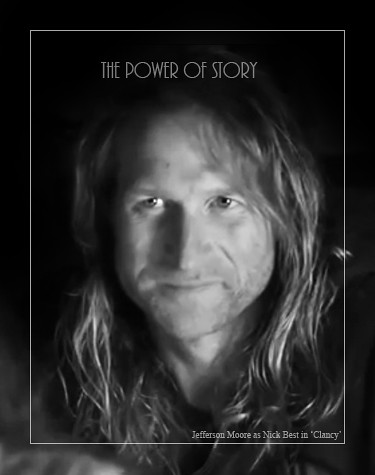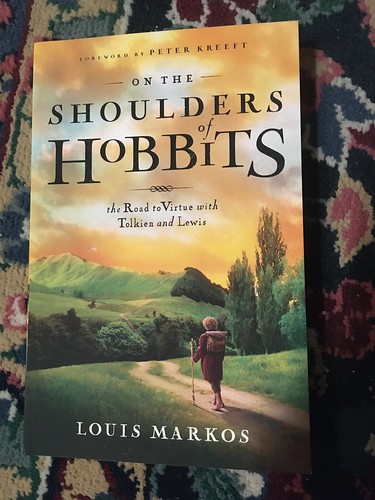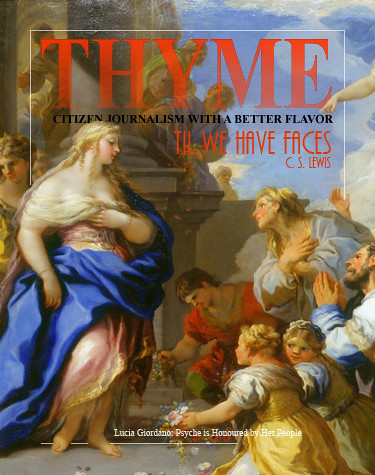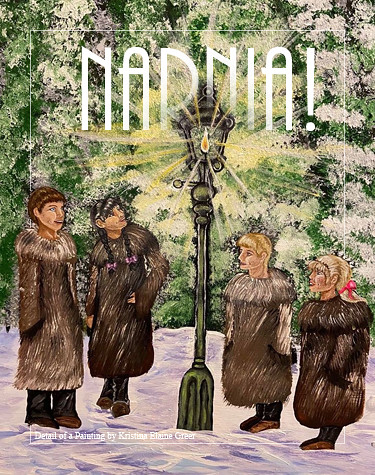
Narnia Painting by Kristina Elaine Greer
Through the Wardrobe!
Capturing the Magic of Childhood Adventure

A new painting by Kristina Elaine Greer captures the magic of a journey to Narnia!
Narnia was born in troubled times. As the Nazis bombed London and children were being evacuated to the countryside, two girls came to stay with “the professor” C. S. Lewis at ‘The Kilns.’ One day Lewis found one of the girls playing in a wardrobe and the inspiration was planted. Lewis would weave his own journey to faith into the stories of this magical world, inspiring generations to follow. During the great war he would produce a series of talks for the BBC about faith that gave hope and comfort to a people besieged. Later those talks would become the basis for his book: Mere Christianity. This work, compiled by a layman, is considered one of the great works of Christian Apologetics. Now Kristina Elaine Greer, in a new painting of Narnia, brings the wonder of this world to a new generation!

Aslan!


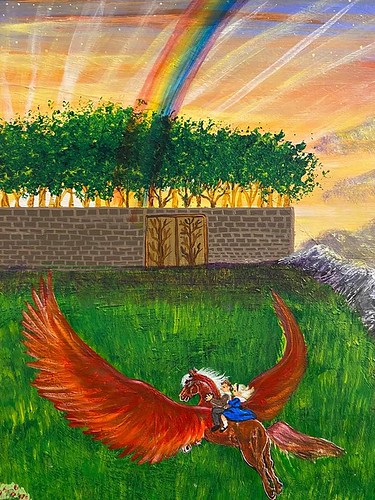



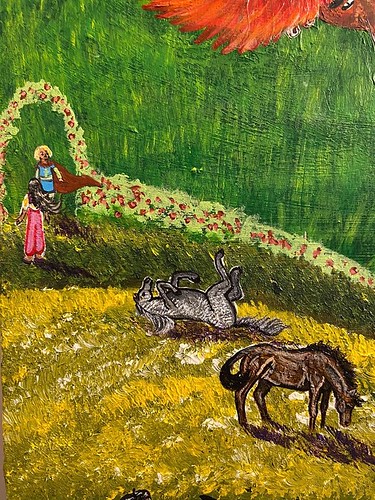




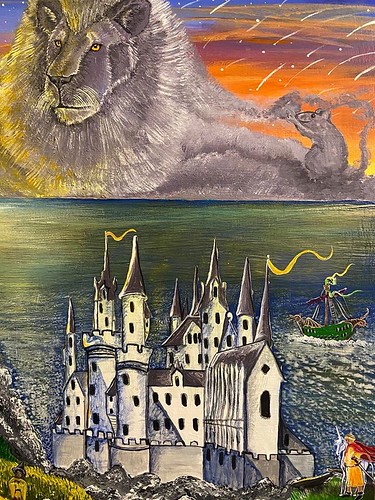
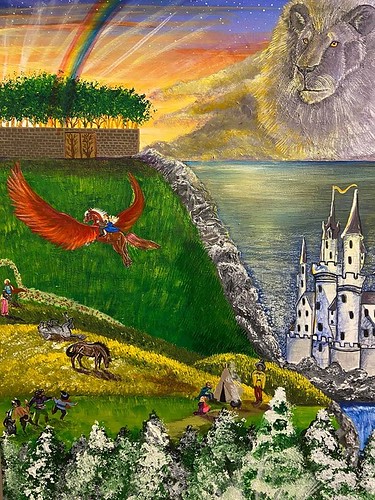
Can you find a reference to each of the Narnia Chronicles in the painting?
Further Up and Further In
[click to read]
Tearfully, she held the family photo close and remembered the happy times. Indeed, there had been joyous times with her three siblings in their small London home. Then followed the terrible sirens and explosions. Neighbors perished and gaping holes smouldered in once-quiet neighbourhoods. The evacuation came next, which meant leaving Mum and Dad behind; we siblings boarded a train and headed for the safety of the countryside and extended family. (read more)
He was Sowin’ Love
By Bob Kirchman
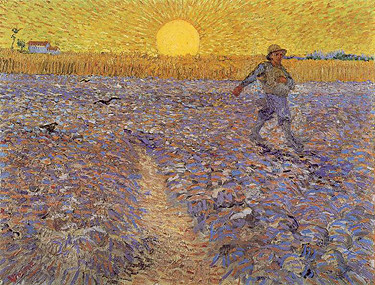
“I don’t hide from you that I don’t detest the countryside — having been brought up there, snatches of memories from past times, yearnings for that infinite of which the Sower, the sheaf, are the symbols, still enchant me as before.” (Letter 628 to his friend and painter Émile Bernard, on or about June 19, 1888).
Vincent Van Gogh, Le semeur (The Sower), Mid-June 1888. Oil on canvas, 64 x 80,5 cm. Kröller-Müller Museum,The Netherlands
There seem to be two distinct personalities in our community of faith. On the one hand there is the person who simply “picked up the Bible and read it, finding between its covers the answers for life.” They tend to speak a lot at conferences. Then there is the person who is probably more like most of us, struggling to read through Scripture, often struggling to stay awake reading “through the Bible in a Year,” but getting little from it. Let’s be brutally honest. Some of us can quote Bible passages and recite the stories by rote. But where, if we may ask, is the “change” that it should bring in our lives? If you are in this category, you’ve probably never been invited to speak at a conference. But this is not a criticism of different personalities. It is a great place to ask the question “What do you see when you look at the Bible?” There is no wrong answer, but this is simply an invitation to look deeper into the writing with the goal of getting to know the Writer.
Indeed, there is a danger in simply knowing the text well. My reasoning runs along the lines of the study of immunology. Suppose you want to keep someone from getting a terrible disease. You give them a weakened or less harmful variant of the pathogen that could harm them. Edward Jenner in the eighteenth century gave non-fatal cowpox injections to people to protect them from smallpox, which was a more dangerous variation of the bovine disease. So with Scripture, the girl who simply picks up a Bible, knowing very little about it, reads for meaning and discovery. She is seeking. She will find. On the other hand, the guy who has been better taught might think he’s heard it all. He already knows what it says so he tunes out the process of discovery. For him it never becomes more than review.
All of which brings me to a wonderful daily devotional by Bishop Robert Barron on an old, well known story from Mark 4:1-20 – “The Sower and the Seed.” Most of us raised in the church know the story from memory. A farmer scatters his seed on good soil, rocky soil, amid thorns and even upon the path. Most people present that story and immediately go into a discussion of the meaning of the different types of soil. They are analogous to the relative conditions of our hearts. We hear the message and apply the different soils symbolically to ourselves. We quietly flag the need to consider the condition of our own hearts. We take in the message: “Prepare your heart.” It is a good message. But is it the real message Jesus meant to tell us?
When Jesus told the story, he was telling it to a group of people who very likely were farmers themselves. Farmers don’t like to waste precious seed, and here’s a guy throwing seed EVERYWHERE! To a man of the soil it seems extravagant – yea even wasteful. But remember here that Jesus is talking about the Kingdom of God! Here is God Himself, the extravagant Sower! He gives Himself not only to those ready to respond, but to those who might be hard, those who might be least likely (in our human thinking) to respond. Bishop Barron writes: “God’s love is irrational, extravagant, embarrassing, unreasonable, completely over the top.” The question I must ask now is if I am adding something to Scripture that isn’t there. It is a valid question and in answering it one might turn to the other parables.
The Prodigal Son is an obvious next stop in our journey. We all know the story – one of two sons asks for his inheritance while his father is still alive. The son squanders his fortune and starves. He returns to his home, hoping to be accepted as a servant. His father welcomes him with great rejoicing! But what of the subject here is the extravagant love of the father! He’s so much in love with his sons – both of them, that he is willing to forgive what in the culture of the day must have been a terrible insult! He’s standing out where he can see someone’s approach from quite a distance! He see’s his lost son approaching. He RUNS to meet him! Remember that those who heard Jesus were in some cases landowners. They would have flinched at the insult and subsequent squandering of the family fortune – but they would have really squirmed at the telling that the father never stopped looking for the son who had declared him dead. Extravagant love! That is the message too big to get a handle on. But there is more! The lost sheep, the lost coin, the field containing great treasure; It is in the parables that Jesus hides the great recurring message of God’s extravagant love. It is here that we get a glimpse of just how much we are loved. Remember when you were younger and were writing and receiving letters from a special person. You’d scour them to find the expression between the lines. You hoped they cared as much for you as you cared for them! There would emerge thoughts they shared that created a connection that was nothing short of magical. So it is with the thoughts and phrases deliberately placed in Scripture. But you have to read them with the hope of discovery. You cannot read them as a simple list of examples to follow. You have to look for the heart of the writer! In doing so, will you apprehend the scale of God’s love for you? I write this with a prayer that you will.
I use to love to walk behind my daddy
As he plowed our garden every spring
Our little bare feet in the dirt would make me happy
As we talked about what harvest time would bring.
He’d say son this whole world is like a garden
And what you sow your surely gonna reap
Where bitter seeds are planted hearts will harden
But a caring hand will make the harvest sweet.
And he was sowin’ love for the family
Yeah, he was sowin’ love, he took a little extra time
Lookin’ forward to a bountiful harvest
Like a good father does he was sowin’ love.
And how I use to love and sit and watch my momma
Workin' with her needle and her thread
So patiently she’d listen to our problems
And we knew she heard every word we said.
She'd say “Children this old world is full of scratches
And in your life your bound to have a few.”
I guess that's why the good Lord gave us patches
So we could start each day out feelin’ new.
Yes, she was sowin’ love for the family
She was sowin’ love, she took a little extra time
Lookin’ forward to a bountiful harvest
Like a good momma does she was sowin' love.
– Paul Overstreet, Sowin’ Love
Hope and Promise for Our Troubled Times

Doves. Detail of a Mural by Kristina Elaine Greer and Bob Kirchman
He that dwelleth in the secret place of the most High shall abide under the shadow of the Almighty.
I will say of the Lord, He is my refuge and my fortress: my G-d; in him will I trust.
Surely he shall deliver thee from the snare of the fowler, and from the noisome pestilence.
He shall cover thee with his feathers, and under his wings shalt thou trust: his truth shall be thy shield and buckler.
Thou shalt not be afraid for the terror by night; nor for the arrow that flieth by day;
Nor for the pestilence that walketh in darkness; nor for the destruction that wasteth at noonday.
A thousand shall fall at thy side, and ten thousand at thy right hand; but it shall not come nigh thee.
Only with thine eyes shalt thou behold and see the reward of the wicked.
Because thou hast made the Lord, which is my refuge, even the most High, thy habitation;
There shall no evil befall thee, neither shall any plague come nigh thy dwelling.
For he shall give his angels charge over thee, to keep thee in all thy ways.
They shall bear thee up in their hands, lest thou dash thy foot against a stone.
Thou shalt tread upon the lion and adder: the young lion and the dragon shalt thou trample under feet.
Because he hath set his love upon me, therefore will I deliver him: I will set him on high, because he hath known my name.
He shall call upon me, and I will answer him: I will be with him in trouble; I will deliver him, and honour him.
With long life will I satisfy him, and shew him my salvation.
– PSALM 91
[Click to Read]


